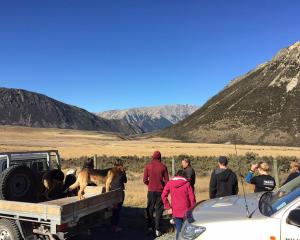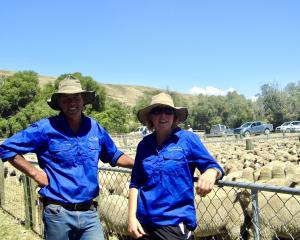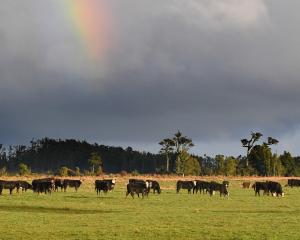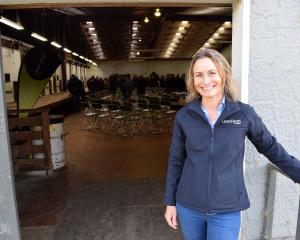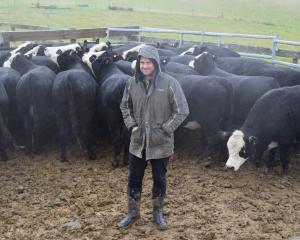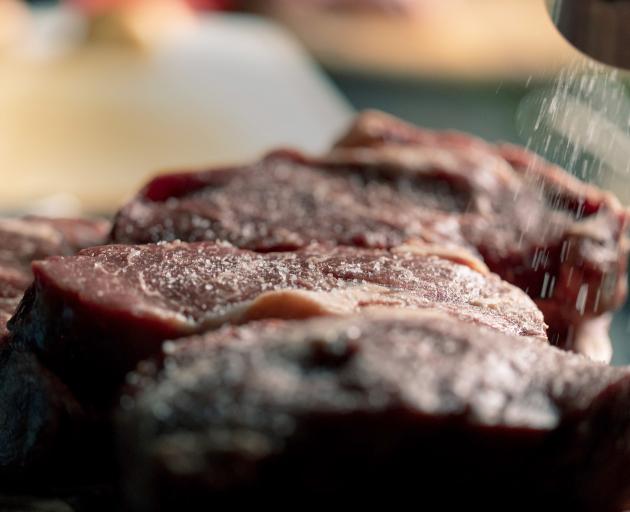
But that was the journey taken by Alliance Group's steak, which won a gold medal in the World Steak Challenge in Ireland.
The company's Pure South handpicked 55-day aged beef, processed at its Mataura plant, won a gold medal for ribeye and a bronze medal for fillet.
There were more than 300 entries from 25 countries and the title of world's best steak was awarded to a grass-fed Ayrshire ribeye steak reared in Finland and entered by JN Meat International, from Denmark.
It was Alliance Group's second consecutive success in the competition, while Anzco Foods and First Light Foods also won gold medals with their entries.
Alliance's hand-picked 55-day aged beef was launched to the food service sector last year following a three-year research and development programme.
Accredited graders hand-selected the meat based on quantifiable meat-quality characteristics such as marbling, fat cover, fat colour and pH. Selected cuts were then aged in a vacuum bag for 55 days.
The success in the competition was something that Alliance was very proud of, general manager sales Shane Kingston said.
While it was "early days" for the premium beef, the recognition gave the company confidence that the product was high quality.
There were lots of things happening in the company's premium brands, in its co-products team and also in its core business, and it was much clearer on what its strengths were and the opportunities for further improvement, he said.
Mr Kingston was recently in China, where he toured Alliance's Chinese in-market partner Grand Farm's Xilinhot processing facility in Inner Mongolia. The plant's annual processing capacity recently increased from 300,000 to 900,000 animals.
He, Alliance's Asia leader Alan Kent, and the company's chief executive David Surveyor also met Grand Farm's president Xibin Chen in Shanghai and discussed planning and key projects.
Other topics included the development of the Chinese market, including key trends; the ongoing growth of protein; the further development of offal product and the opportunity to develop venison presence within key channels; and the current outbreak of African swine fever (ASF).
When it came to key trends, Mr Kingston said over-appreciation in personal wealth was changing consumer behaviour.
There was a greater influence of the West in dining; that change was seen in the products consumed and the kind of dishes becoming more mainstream in both restaurants and premium butcheries.
While in Shanghai, they visited some retail outlets including the Swiss Butchery, where Alliance's Pure South lamb was on sale.
Swiss Butchery recently opened its fourth shop in Shanghai. Its stores were located in what had traditionally been expatriate neighbourhoods but there had been a shift in clientele to upmarket local customers.
The outlets offered fresh meat cuts by Swiss butchers who made in-house products based on Swiss recipes. The stores were also delicatessens.
The visit provided much more awareness of the scale of the devastating African swine fever outbreak that has decimated Chinese pork production.
There had been increased demand for wider protein, although there were three big drivers - the effect of ASF was "definitely real", there was the closure of traditional "grey" channels, and there were changes to China Inspection and Quarantine, Mr Kingston said.
Protein producers around the world were looking to see if they could unlock some incremental demand in China.
While there were positive signals in China for red meat producers, Alliance was "not fixated" solely on that country, he said.
In the UK, there was nervousness about the amended Brexit date, but it was still an attractive market for the company.
As for alternative proteins, Mr Kingston said there was more noise about them in Europe - "not so much in the UK" - but they were still small in terms of transactions.
There was certainly a level of uptake and they were getting a lot of media attention, but they were still materially small as a proportion of total sales, he said.


